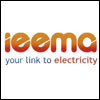 According to Ajoy Mehta, Principal Secretary–Energy, Government of Maharashtra and CMD, Maharashtra State Electricity Distribution Company Ltd coal has no future. Mehta was speaking at the recently-held Annual Convention of industry association IEEMA, in Mumbai. On the occasion Mehta asserted that nuclear energy would be the way forward. Excessive reliance on coal was ruled out and renewables would play only “incremental” role.
According to Ajoy Mehta, Principal Secretary–Energy, Government of Maharashtra and CMD, Maharashtra State Electricity Distribution Company Ltd coal has no future. Mehta was speaking at the recently-held Annual Convention of industry association IEEMA, in Mumbai. On the occasion Mehta asserted that nuclear energy would be the way forward. Excessive reliance on coal was ruled out and renewables would play only “incremental” role.
Mehta is of the opinion that the Indian power sector would need radical thinking in each of the three departments— generation, transmission and distribution, in order to support the country’s stated economic growth objectives. Mehta felt that India would need to double its per-capita power consumption from the current 1,000 kwh per year, to at least 2,000 kwh. Growth in power consumption is closely linked and is in fact a precursor to economic growth, he said.
On the power transmission front, the top MSEDCL official cautioned that land acquisition and securing right of way would get even more difficult with time. Technology needs to improve significantly to ensure that more power can be carried across the narrowest corridors, he explained.
Regarding distribution, Ajoy Mehta held the view that government control over electricity distribution will subsist. Even whilst admitting that government was poor in terms of service delivery through technology, he noted, “Government control on (power) distribution cannot be given up easily.” The way forward for the government would be to induct more information technology-related services in billing, metering, etc. Speaking about Maharashtra, Mehta assured that the state was striving to release electric connections promptly. Currently 13 lakh new connections are given out every year and the state government has committed to spend Rs.6,000 crore per year for the next three years towards expediting new connections alone.
In his address to IEEMA members, he exhorted electrical equipment manufacturers to actively engage in “incremental research,” a term that he used to denote subtle but crucial advancements in existing products and services. While government agencies will be responsible for developing new products and technology, which he referred to as “blue sky research,” he admitted that India did not have a strategy for incremental research.
Mehta also suggested the inculcation of “futuristic” thinking. “It is never enough to think about my problems of tomorrow morning alone,” he said amid mild laughter. Citing an example, he explained that though nuclear energy was firmly established on the government’s agenda, there has been no proactive “futuristic” research in the area by the private sector.
Dismissing the Indian power equipment industry’s grouse about being beaten by China in terms of price and by Europe in terms of quality, Ajoy Mehta reiterated that only Indian suppliers—not the Chinese or other foreign suppliers—know the local environment. Indian suppliers are in the best position to make products best suited for the Indian environment, Mehta reaffirmed.
Welcoming IEEMA’s “Go Global” theme, encouraging the electrical equipment industry to look beyond the local markets, Ajoy Mehta observed that while tapping international markets is a logical step for the industry, it needs to be tackled deftly. Mehta expounded by saying that approaching global markets will entail uncertainty, volatility, complexity and ambiguity. Elucidating, Mehta noted that “uncertainty” was very different from risk. “While risk can be calculated, uncertainty cannot and while ‘change’ can be handled, volatility cannot.”











